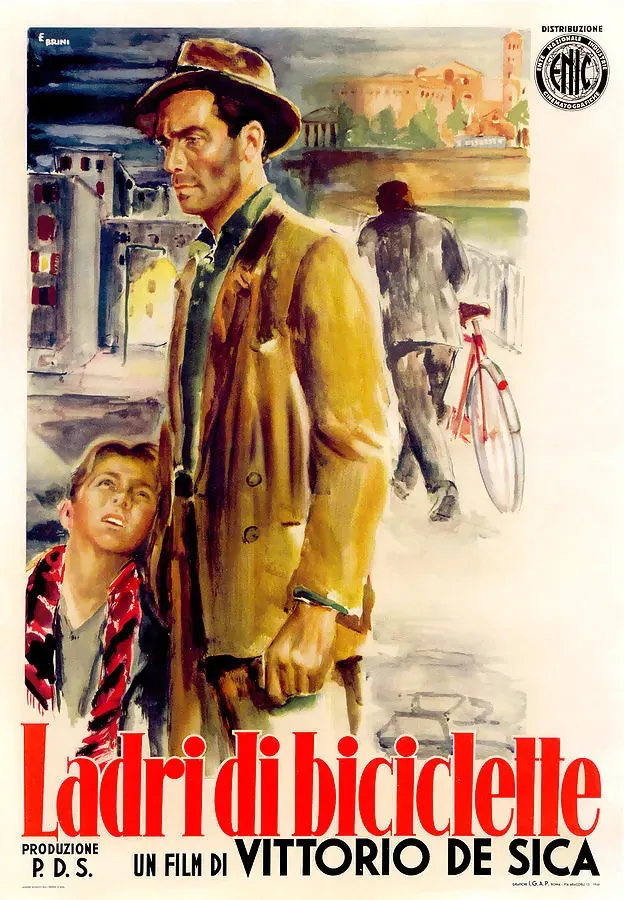Bicycle Thieves (1948)

Bicycle Thieves (1948) is a spare, devastating portrait of post‑war Rome and a father's desperate struggle to provide for his family. When Antonio Ricci finally lands a job that requires a bicycle, his wife pawns the household linens to redeem the family bike—only for it to be stolen on his first day at work. With his young son Bruno at his side, Antonio spends a long, sun‑bleached Sunday scouring markets, churches and crowded streets, trying to recover the one thing that stands between his family and starvation. Watching the film is like walking the city with them: you feel the dust and noise of Rome’s markets, the push and pull of the crowd, and the small, crushing humiliations of poverty. Director Vittorio De Sica’s neorealist approach—black‑and‑white cinematography, nonprofessional actors, and unobtrusive camera work—gives the story documentary immediacy. Lamberto Maggiorani and the child actor who plays Bruno create a quietly believable bond; the film’s emotional force comes less from melodrama than from small gestures, silences and a mounting sense of urgency. The movie is thematically rich but heartbreakingly simple: it explores dignity, fatherhood, social indifference and the limits of law and justice in a broken economy. As Antonio’s search becomes more frantic, the film asks uncomfortable questions about what desperation can drive a person to do. The ending is stark and unforgettable, leaving most viewers shaken rather than comforted. If you see Bicycle Thieves, expect a slow, humane drama that lingers in the memory. It’s not just a story about a stolen bicycle but a powerful, human study of love and helplessness in hard times—one of the defining films of Italian neorealism.
Actors: Lamberto Maggiorani, Enzo Staiola, Lianella Carell
Director: Vittorio De Sica
Runtime: 89 min
Genre: Drama
![]() 8.3
/10
8.3
/10
8.3
/10
![]() 8.3
/10
8.3
/10